Why Fashion Can be Vital for Refugees
This article originally appeared on VICE France.
Last year, a young man from Afghanistan walked into the EMMAÜS Solidarité in Paris – a humanitarian centre that has so far provided support to around 60,000 refugees trying to make their home in France. After travelling for months, he was in need of some shoes – and had a specific request. He asked for sneakers that were “not too ugly, more like JAY-Z’s”.
The volunteers loved that he asked them this, because it showed how easy it is to undervalue the social importance of clothes for refugees – who, for a number of obvious reasons, might consider other factors beyond the basic functionality of an outfit. The fit and style of a piece of clothing might help them feel equal to the people they pass by on the street, or compliment their personality. Or, perhaps, it just looks good on them.
From that moment on, the volunteers decided to ask more refugees exactly why they chose the clothes they did from the bins filled with donated shoes, coats and trousers. Working with photographers Frédéric Delangle and Ambroise Tézenas, these conversations eventually inspired the exhibition “Sneakers Like JAY-Z’s“.
The images and the accompanying stories – first displayed on the walls of the EMMAÜS Solidarité – are being exhibited all summer at the Rencontres d’Arles photography festival in Arles, a city in southern France. If you can’t make to Arles, here’s an exclusive sample of some of the photographs and stories.
Ibrahim, 23, Ivory Coast
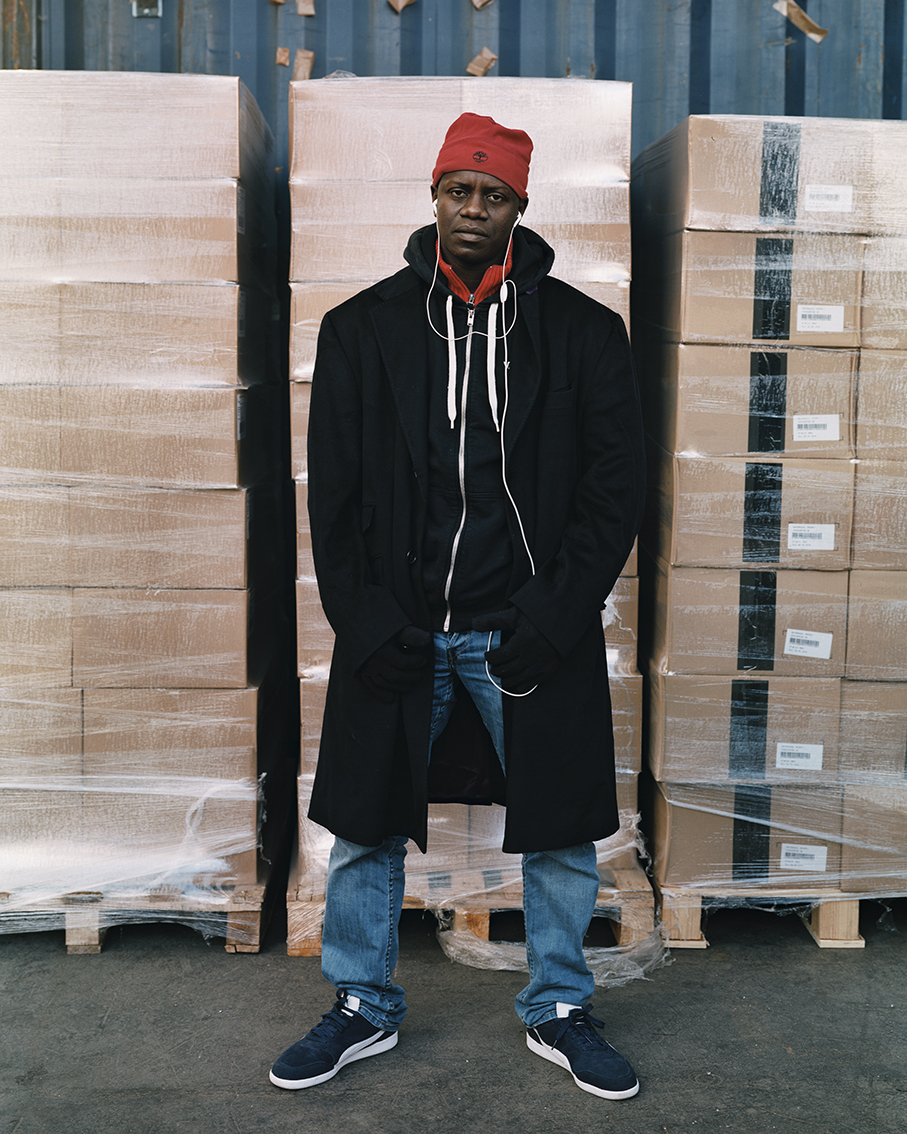
“I chose this black coat because black goes with everything. Also, it symbolises my origins – I’m African, my skin is black and I like everything that’s black. As a refugee, it’s very important to dress well. There’s an old saying: ‘It’s better to make people like you than to make them pity you.'”
Haroun, 24, Chad
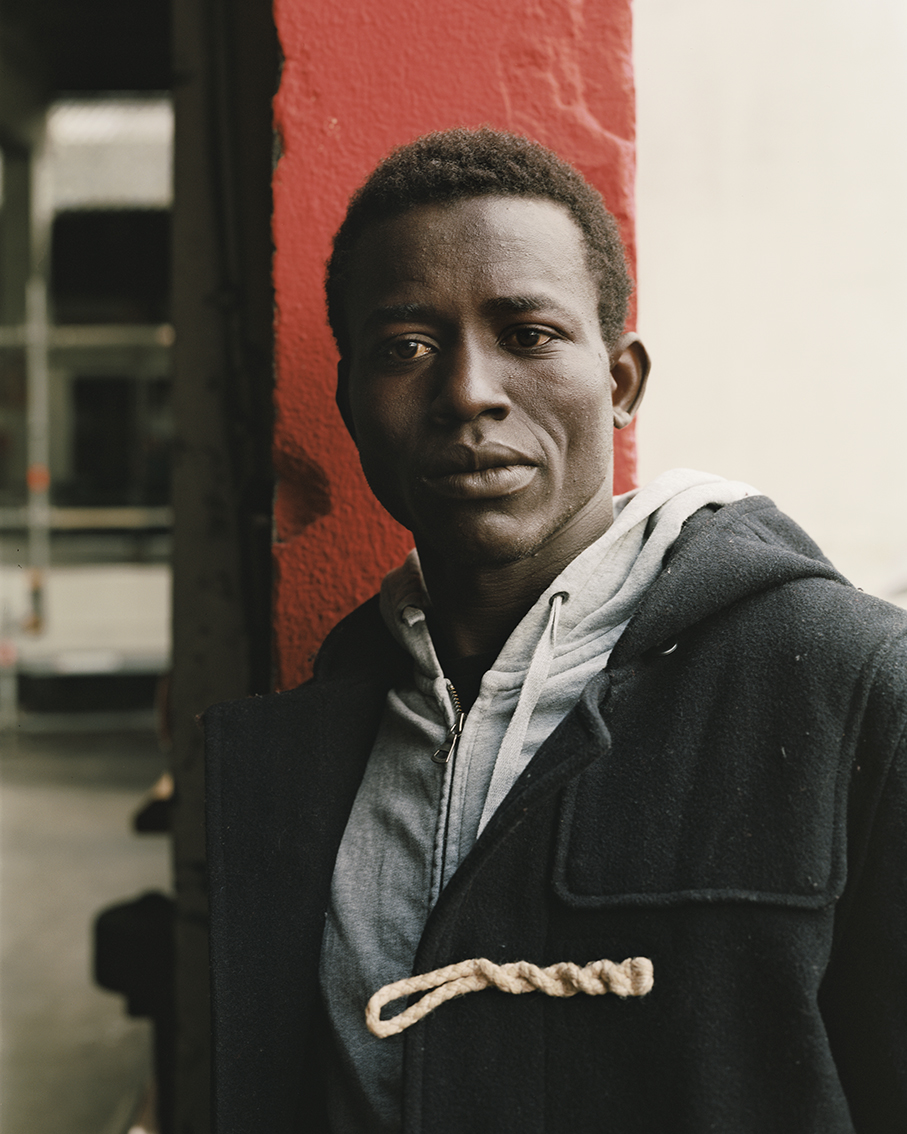
“This is how I like to dress – it reflects my personal style. Even if you’d given me €5,000, I’d have picked the same clothes. Back in Chad, I would dress just like this – well, except for the coat. I wouldn’t have needed it in that climate.
“Here in France, people dress similarly, yet still differently, compared to my country. It’s hard to explain, but it’s just different. And with this coat, I feel on equal footing with everyone else. When you come to someone’s country, I think it’s only natural to adapt to the way they live there. It’s also important for me to look good so I can find a job or possibly study.”
Idriss, 20, Ivory Coast
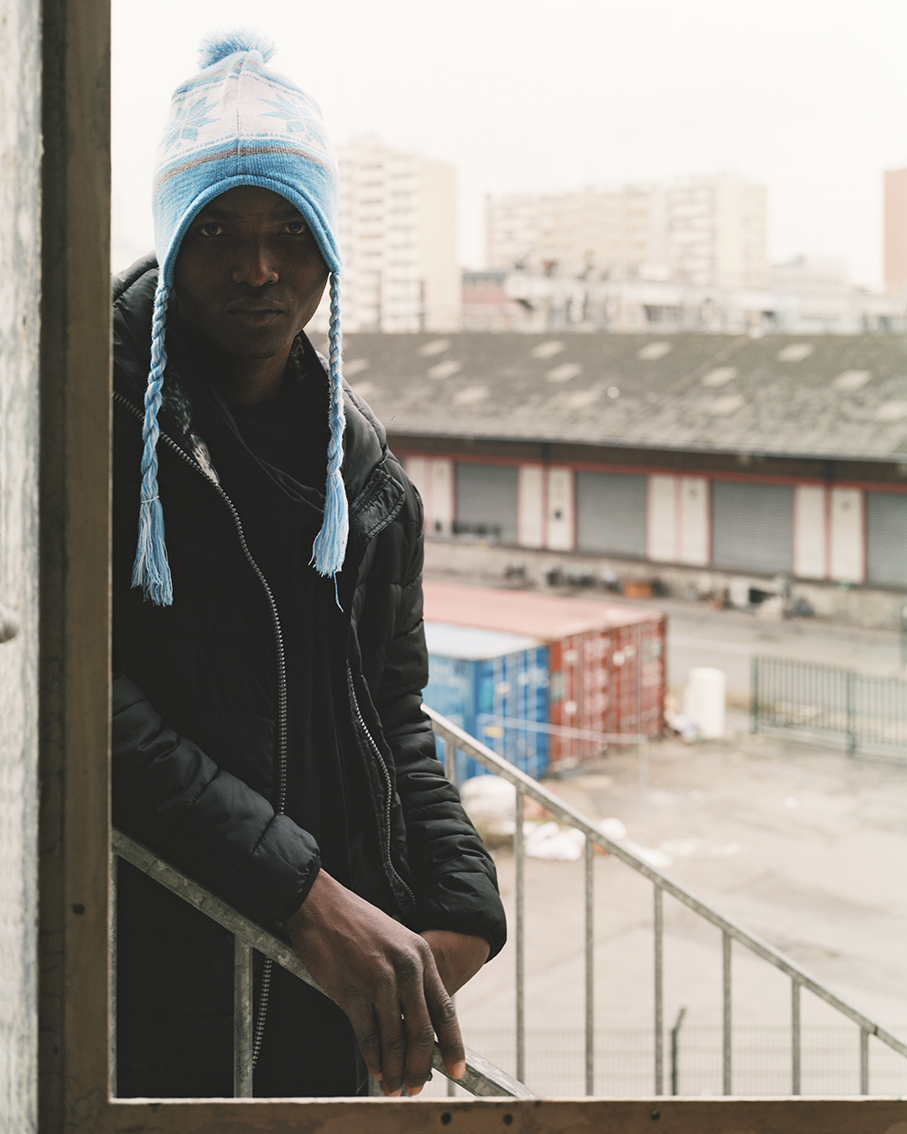
“Firstly, I chose black clothes because I love dark colours, as it’s harder to get them dirty, so you stay looking good. My favourite brand is Nike, and my fashion role models are Fally Ipupa and the Ivorian singer Abou Nidal. If you’re well-dressed, people will respect you, which also helps to keep you safe.
“If my friends could see me now, they’d say I was back to my old ways of dressing well, which would be reassuring. You know, I had to leave my entire life behind; everything was taken from me – my clothes, birth certificate, diploma, everything.”
Lassane, 20, Gambia
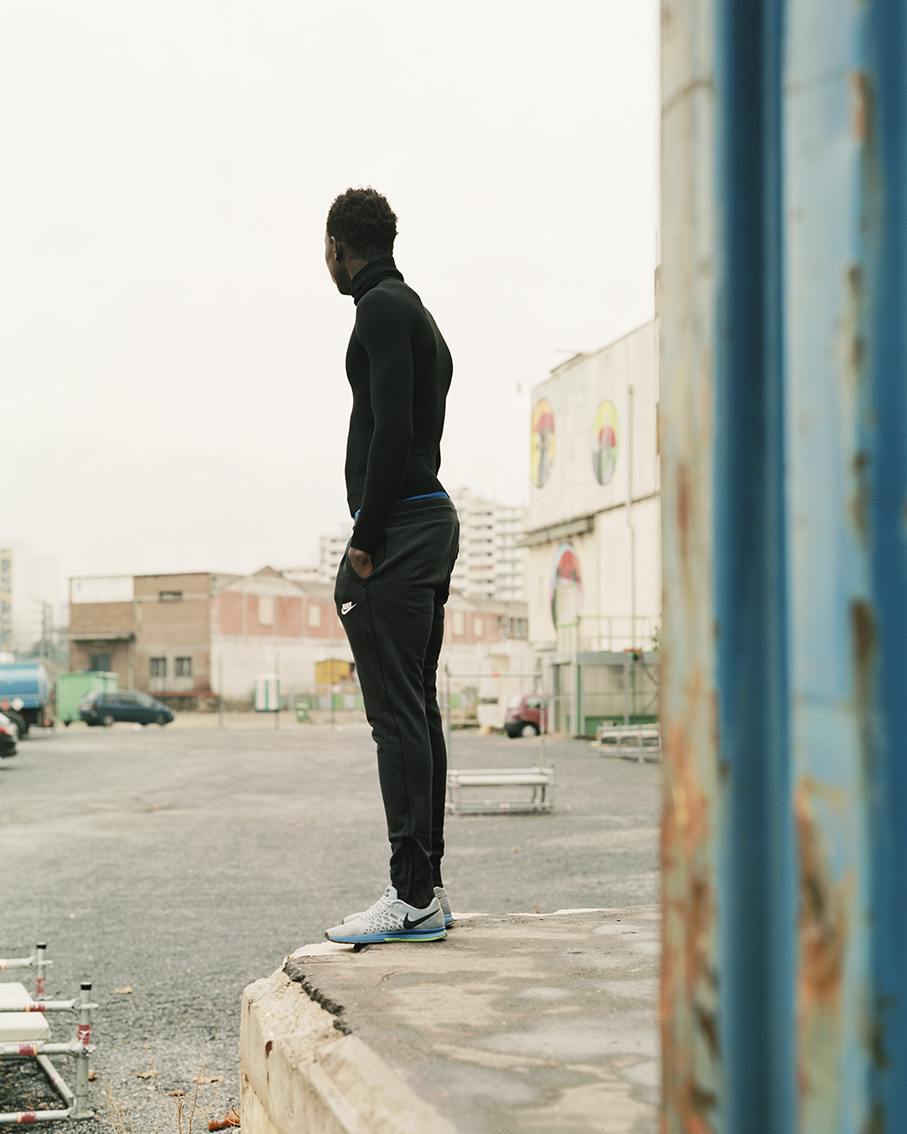
“I love black, and I picked these joggers because Nike is my favourite brand. The way I’m dressed now makes me feel confident mingling with anyone.
“In Gambia, I almost always wore authentic Nike clothes, imported from England. In Africa, it’s easy to run into fakes, but you can always tell the difference between them and the real ones. If you want to be respected, then it’s only natural to dress well. But when you’re a refugee, you should be happy with whatever you’re given.”
Waqar, 23, Afghanistan
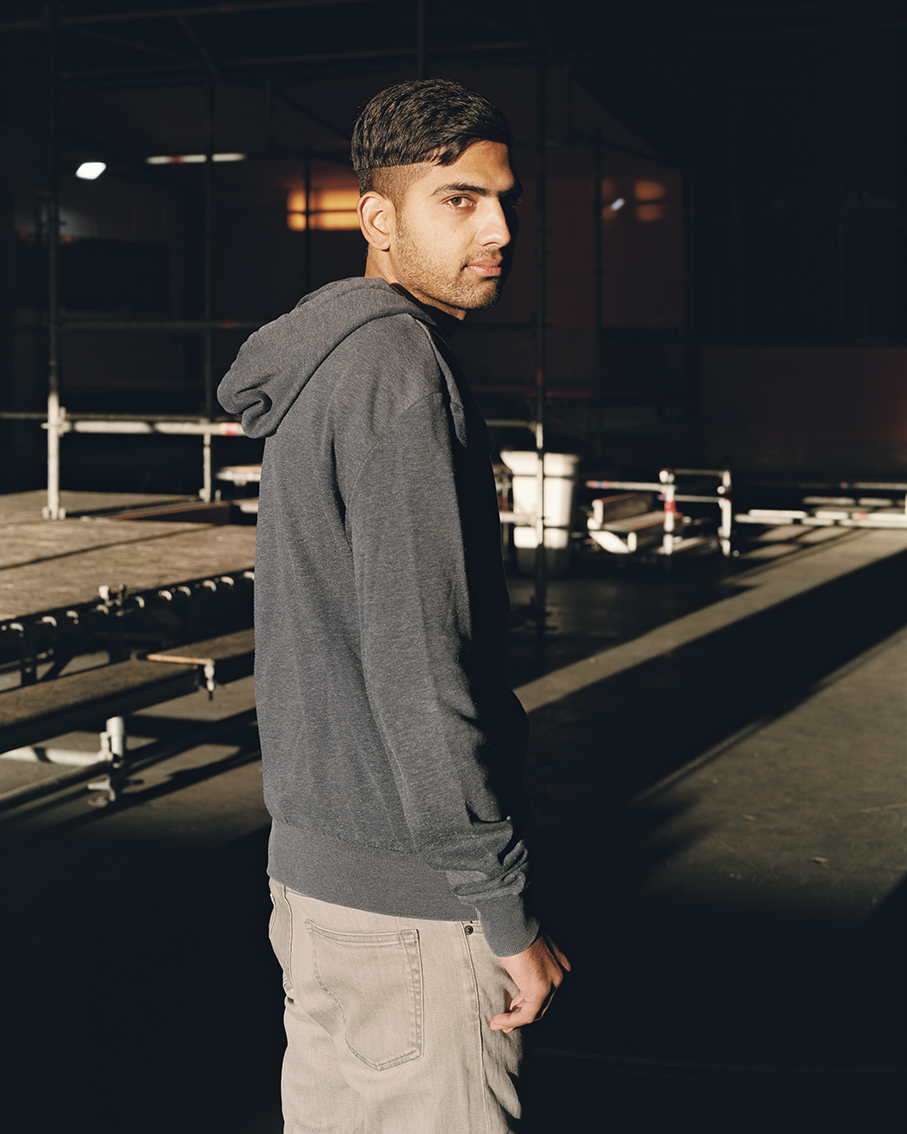
“Now that I’m here, I wear jeans and T-shirts because I have to adapt to the culture. In Kabul, you can dress like this if you work in an office. A few women wear jeans there, but not many – I’d say 99 percent of them wear traditional clothing.
“That said, the situation in Kabul is still a lot better than in the rest of the country. Afghanistan isn’t well equipped with an electrical grid, internet or mobile phones, so people don’t have access to the latest trends. Also, the Taliban won’t allow you to wear whatever you want. They can beat you up if you dress a certain way. For example, if you wear jeans, they’ll send a letter telling you to stop. Then if you wear them a second time, anything can happen – you can even be killed. And you never really know who’s working for the Taliban. It could even be your neighbours, you just don’t know.”
Aboubacar, 21, Guinea
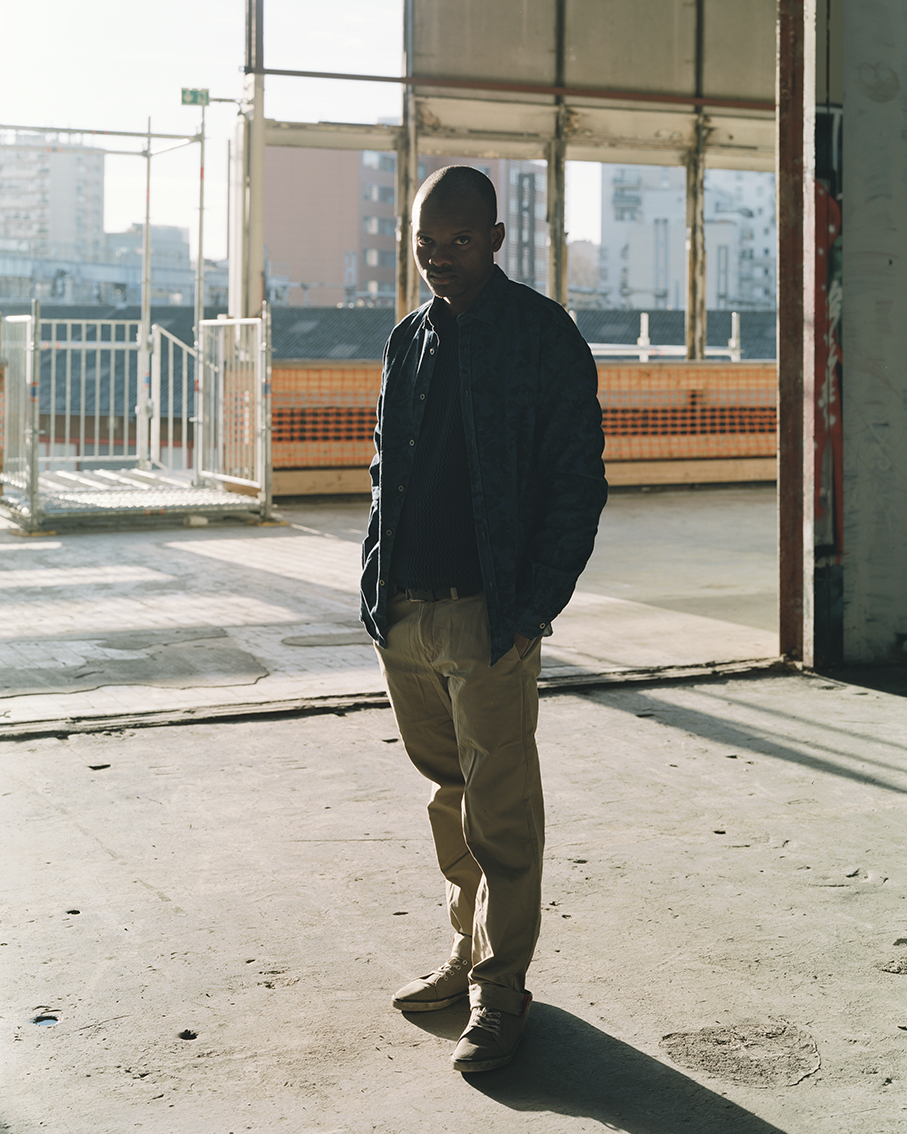
“I don’t have any other clothes of my own anymore, because earlier this morning the police tear-gassed my tent and slashed it up. I ran away, but when I came back later there was nothing there.
“I chose these khaki trousers because beige is my favourite colour. I like that it’s unique. Being stylish means attracting people around you and presenting them with a good image of yourself. Traditional clothing in Guinea is very bright and colourful – shirts aren’t really a part of our culture. Instead, you have more tunic-style outfits.
“Though they can be fun to wear to a party, I’m not a big fan of that traditional style; it’s more for the older generations. But here, I just want to look and live like everybody else. I don’t want to offend anyone – I came here to try to conform to France’s norms, I don’t want any trouble.”
Sharif, 24, Afghanistan
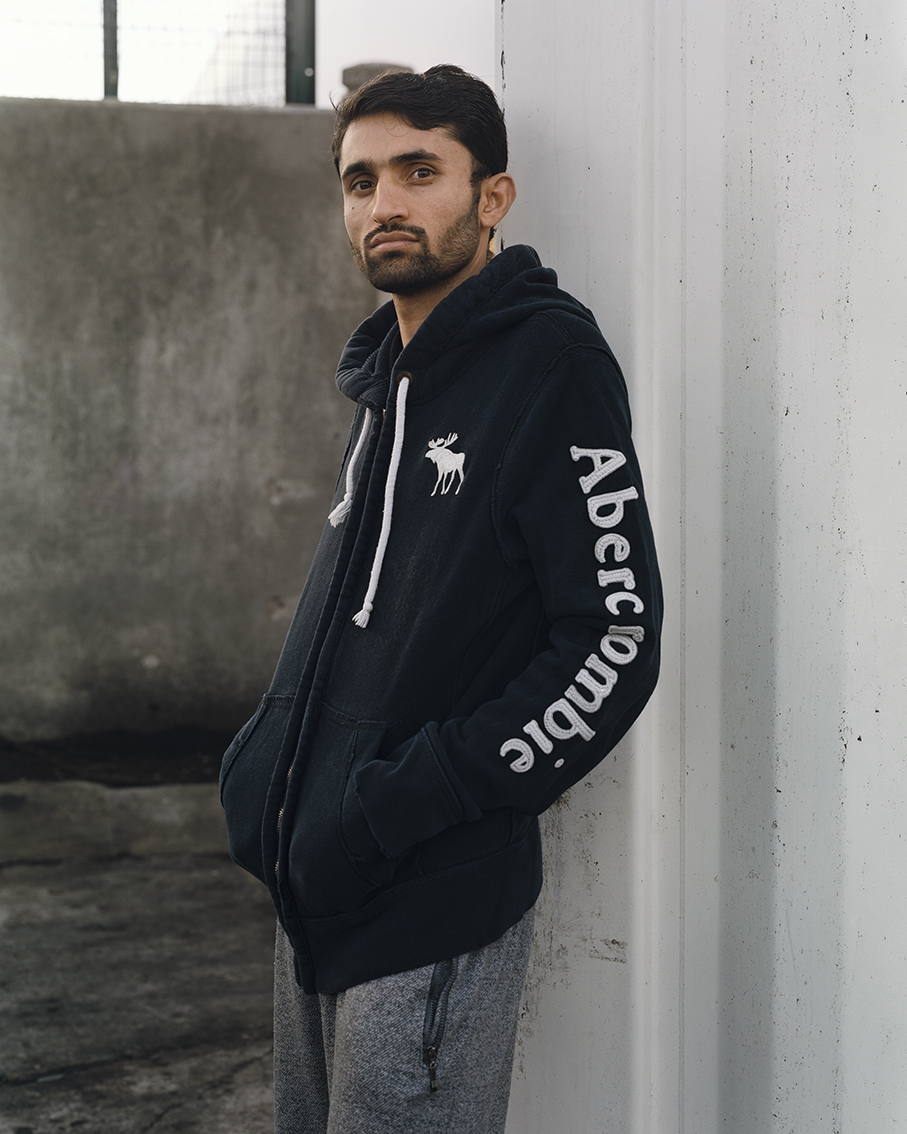
“I think that if you’re badly dressed, everyone sees you as just another refugee. I chose dark colours that are harder to get dirty because we don’t always have access to washing machines here. Shoes are very important too, especially when it’s cold. I have shoes, but they have holes in them, so when it rains I have to wear plastic protectors.”
Bilal, 24, Afghanistan
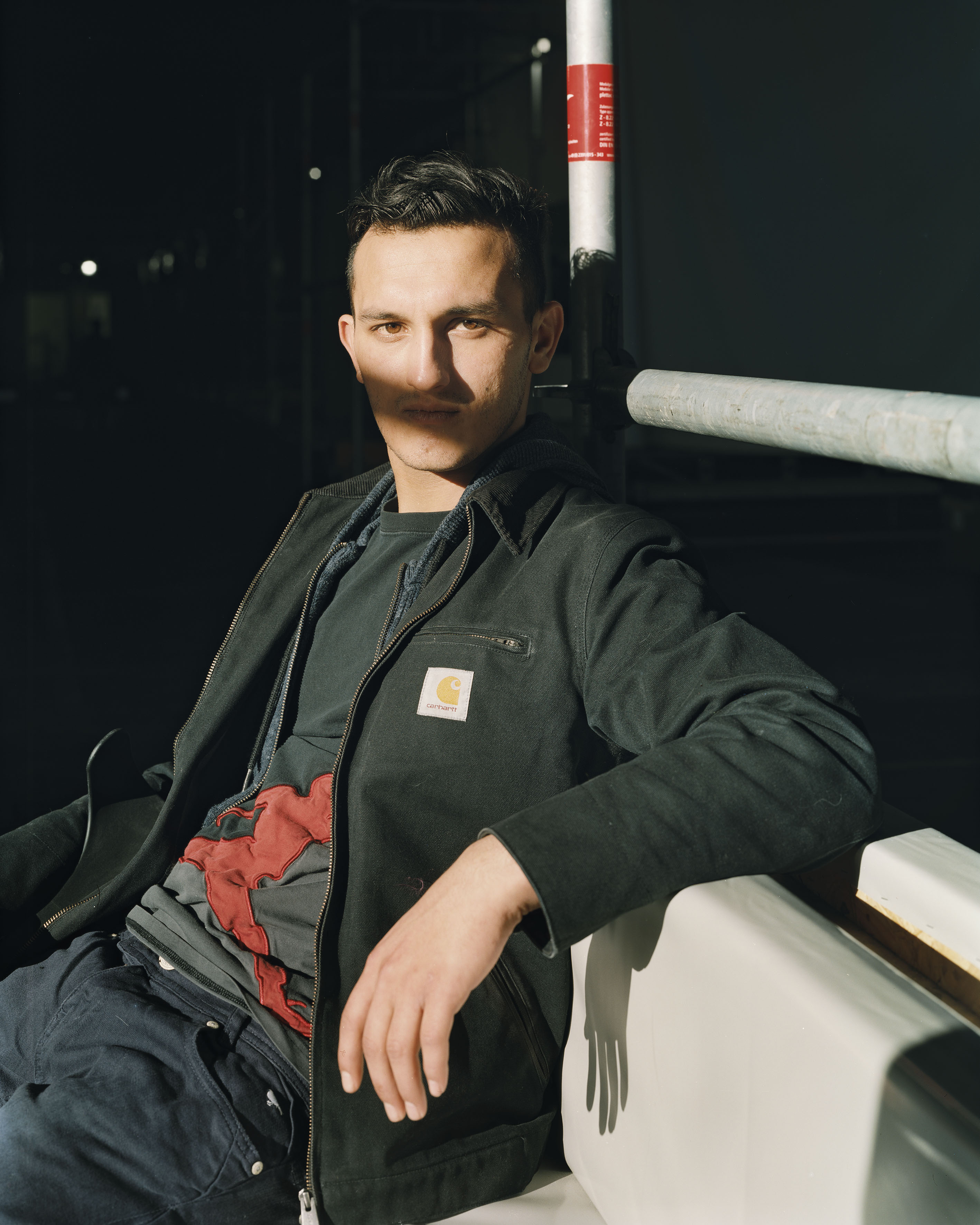
“We Afghans like to copy the way Americans and Europeans dress in their jackets and jeans. But back home, the Taliban won’t let you wear whatever you want. For example, they threaten to kill people for wearing jeans. So for me, new clothes means a new life.”
This article originally appeared on VICE FR.